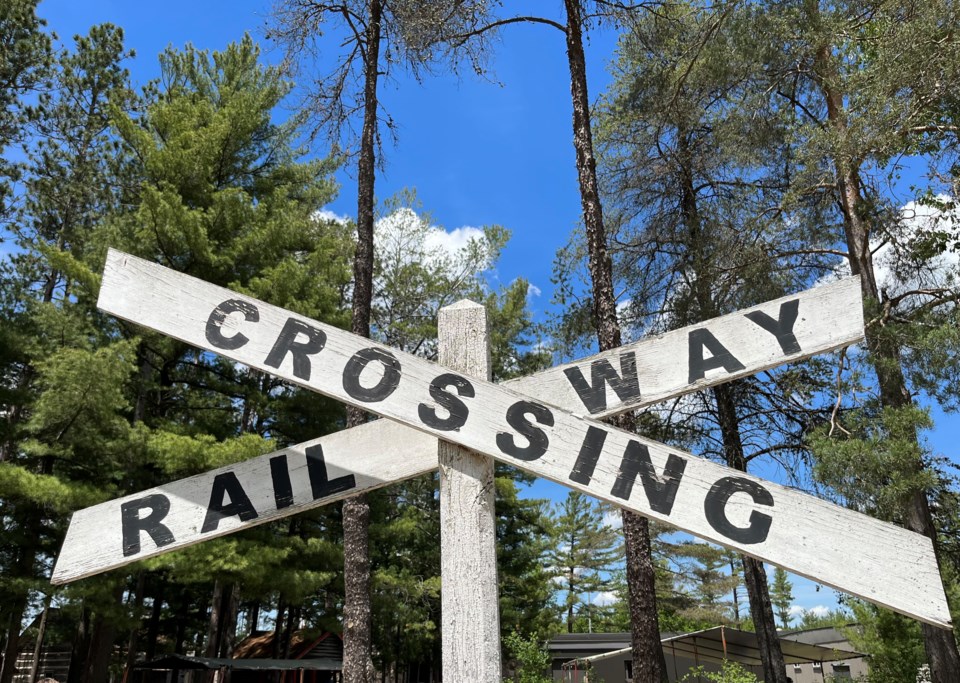Three years ago, Transport Canada updated its grade cross regulations with new amendments that all public and private railway crossings in Canada must follow. The goal is to improve safety by bringing sightlines and grade levels into compliance with the new standards.
Private railway crossings are those where there is no public use of the crossing, and the same individual or farm business owns the land on both sides of the tracks. The crossings were put in by the rail company when the lines were originally built so that landowners wouldn’t be cut off from their own land by the rail line.
There are a significant number of farm properties across the province that have an active railway line passing through their land, which means they have a private level crossing over the rail line that serves as the farmer’s only way of access to fields on the opposite side of the tracks.
Earlier this year, farmers and rural landowners with private grade crossings on their properties began receiving letters and contracts from railway companies regarding these private crossings. The contracts outline proposed maintenance work that rail companies – such as Canadian Pacific and Canadian National – will complete, how much the property owner will have to pay for this work, and a requirement for the landowner to buy liability insurance.
Historically, these types of crossings that were used for farm purposes were designated as farm crossings and their maintenance had always been the responsibility of the railway. Now, that distinction is no longer being made. Instead, all farm crossings are being classified as private crossings – with the costs for upgrades and maintenance being downloaded to farmers and landowners.
Depending on the crossing, those costs – and the liability insurance farmers are now required to have – can be substantial and far beyond what is considered an affordable expense.
When the amendments to the regulations were first announced three years ago, the Ontario Federation of Agriculture (OFA) began drawing attention to the importance of the differences between private and farm crossings, and the need to validate and verify crossing to establish their status.
Based on the correspondence farmers have been receiving, this important 'ground-truthing' step did not take place, and farmers are now left on their own to try and have the railway designate their crossings as farm crossings.
After first hearing about this from farmers in my region of eastern Ontario through the local county federations, I met with both my Member of Parliament, Eric Duncan of Stormont-Dundas-South Glengarry, and Michael Barrett of Leeds-Grenville-Thousand Islands and Rideau Lakes to raise this issue with them. They’ve both indicated that they’re trying to work with farmers to rectify the problems.
The issue is also starting to attract some media attention and I’ve participated in some interviews on the subject this spring, too, which has helped raise awareness of the situation. Farmers need these crossings to ensure they are able to access their own land and aren’t cut off from it by the railway tracks running through their property.
In fact, landowners of farm crossings have a statutory right to a crossing at the railway’s expense. That’s why the OFA is encouraging farmers to raise this issue with their MPs, as well as contact the railway to validate their crossing as one that is for farm use and therefore exempt. Farm crossings are typically only used seasonally or for agricultural activities, and are not available for public use or access.
It’s important to note that not all crossings on a farm will be considered as “farm crossings." For example, a farm-crossing designation does not apply if the land in question was severed by the railway line before 1888, or a person doesn’t own parcels of land on opposite sides of and adjoining each side of the railway, or the land title is severed into two separate parcels.
The OFA continues to work on this issue, and monitor its process and implementation to help reduce the significant financial burdens the farming community is facing over this situation.
Jackie Kelly-Pemberton is a director with the Ontario Federation of Agriculture.



